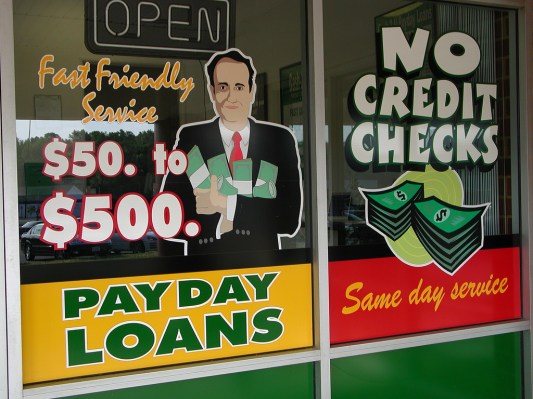If investors continue to funnel money into online lending companies at their current pace, 2014 may be the year that startup lenders finally break the bank — or at least banking’s hold on the lending market.
The imminent public offerings of LendingClub and OnDeck Capital show that markets have embraced the non-bank lending business, and private investors have taken notice pouring over $1 billion into startups in the past year alone, according to CrunchBase data.
Including yesterday’s whopping $225 million equity investment in AvantCredit, led by Tiger Global, U.S.-based startup lending businesses have raised over $1 billion in the past five years, according to CrunchBase data.
Only two years old, AvantCredit has already built up a significant war chest with over $1 billion in equity and debt financing.
In addition to the $225 million equity investment it raised from previous investors Tiger Global and August Capital and new investors including PayPal co-founder Peter Thiel, DFJ Growth, RRE Ventures and the private equity firm KKR & Co., the company also closed a $300 million debt facility from Victory Park Capital.
The Chicago-based company has already expanded its operations from the U.S. to the UK and will use the additional capital to look at other geographies.
The global phenomenon of online lending has its epicenter in the U.S., but startups the world over have launched businesses and raised hundreds of millions to provide alternatives to traditional bank loans (which dried up for consumers and small businesses in the aftermath of 2008’s financial crisis).
All of the activity around lending can be traced back to the inability of banks to adapt new technologies to effectively service customers needing loans less than $100,000, says AvantCredit chief executive Al Goldstein.
“The reality is that banks have been doing a pretty terrible job for a long time,” Goldstein says. “What’s happened with all the regulatory overhead that banks have been hit with they can’t make small dollar loans efficiently. so they haven’t invested in the process at all.”
That in turn has opened up the market in the U.S. for players like LendingClub and Prosper with consumer loans, and OnDeck Capital, for small business loans.
“LendingClub, Prosper, OnDeck have proved that you can do this effectively,” Goldstein says. “You have access to capital both on the equity and debt side. The long term is going to be an environment where there are some winners in the category that become very very large.”
Unlike those other U.S. lenders, AvantCredit is not a marketplace, but a direct lender servicing what might be best described as a sub-prime customer.
The company doesn’t charge a fee to make loans, but has rates that can be much higher than what LendingClub or Prosper may charge. Typically AvantCredit’s borrowers have credit scores around 650 or below and make between $50,000 and $60,000 per year. Interest rates on the loans begin at 19% but can rise much higher. On average, borrowers are paying rates of 36% on their loans.
Those terms may be high, but they’re nothing compared to charges from the embattled UK-based lending company Wonga. Backed by Accel and Balderton, Wonga has been savaged in the UK press for lending to borrowers at rates on short-term loans (or payday loans) that could have annual interest rates that were up to 5,853%.
Wonga raised over $145 million over three rounds and is one of the largest lending companies outside of the U.S. Other international lenders include Renrendai, a Beijing-based lending company which raised $130 million in a Series A round in January.
